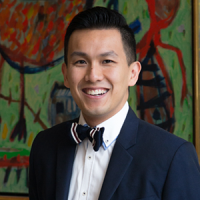Articles / Less bulk billing, worsening job satisfaction, longer consultations

0 hours
These are activities that expand general practice knowledge, skills and attitudes, related to your scope of practice.
0 hours
These are activities that require reflection on feedback about your work.
0 hours
These are activities that use your work data to ensure quality results.
These are activities that expand general practice knowledge, skills and attitudes, related to your scope of practice.
These are activities that require reflection on feedback about your work.
These are activities that use your work data to ensure quality results.
The proportion of GPs who bulk bill has halved in the last year, dropping from 24% in 2022 to 12% in 2023, according to the 2023 RACGP Health of the Nation report released Wednesday, which surveyed more than 2000 GPs.
“It is awful not being able to bulk bill patients and remain viable,” one GP quoted in the report said.
On top of that, GPs are raising their fees (and doing slightly longer consultations). GPs are now charging an average of $74.66 for a level B consultation—up from $64.02 last year.
But that’s not all: Just under 4 in 10 practising GPs say they would recommend the profession to junior colleagues—with urban GPs particularly unlikely to. Only 36% of GPs working in metro-areas and 38% of GPs working in inner-regional areas would recommend general practice—compared with 51% of those working in remote areas.
Likewise, 62% of GPs working in Aboriginal Medical Services or Aboriginal Community Controlled Health Organisations would recommend general practice as a career, compared to 39% of those working in group practice (non-corporate).
Relatedly, job satisfaction is continuing to decline.
“GPs report that their overall job satisfaction has decreased from 70% in 2022 to 66% in 2023. Simultaneously, there has been an increase in those GPs who report that they are ‘very dissatisfied’ with their overall job satisfaction,” the report said.
Gender differences: 64% of female GPs said they were satisfied with their job, compared with 24% of male GPs. Male GPs are also more likely to be considering reducing their hours or leaving the profession altogether.
Work–life balance has also steadily declined every year since 2019, with 71% of GPs reporting feelings of burnout in this year’s survey.
The numbers are worrying:
- Nearly two thirds of GPs (64%) are considering reducing their hours or stopping completely.
- About 3 in 10 plan to retire in the next five years, “resulting in a net premature loss of 24% of all practising GPs,” the report says.
- Nearly half of GPs (48%) said they are dissatisfied with their remuneration—also down from previous surveys.
- 81% of practice owners are concerned about the viability of their practice, compared with 70% in 2022.
RACGP President Dr Nicole Higgins acknowledged that ‘GPs are telling us that more needs to be done,’ but she remained optimistic nonetheless.
“We know the problems impacting our health system cannot all be fixed in one go, but the Federal Government’s groundbreaking investment has shown real commitment to strengthening Medicare and rebuilding general practice for all patients,” she wrote in the intro to the report.
Meanwhile just 6.5% of the health budget goes to general practice, a figure which is also trending down, the report found. By contrast, 44.8% of the health budget goes to hospital services.
Female GPs spend an average of 20 minutes with their patients, while male GPs spend an average of 16.8 minutes. The report hypothesised that this might be due to much higher rates of mental health consultations among female GPs.
Most GPs (58%) are now spending at least 15 minutes with a patient, up from 49% last year. Level Bs are still the most common, but the average consultation length is now 18.6 minutes—up from 17.7 minutes in 2022. GPs in very remote areas average even longer—22.6 minutes.
Read the full report here.

RSV Prevention in Infants and Pregnant Women

STIs – Common and Tricky Cases

Role of Testosterone During Menopause - Evidence vs Hype

Vision and Driving Fitness: Key Insights for Health Practitioners

Yes
No
Listen to expert interviews.
Click to open in a new tab
Browse the latest articles from Healthed.
Once you confirm you’ve read this article you can complete a Patient Case Review to earn 0.5 hours CPD in the Reviewing Performance (RP) category.
Select ‘Confirm & learn‘ when you have read this article in its entirety and you will be taken to begin your Patient Case Review.
Menopause and MHT
Multiple sclerosis vs antibody disease
Using SGLT2 to reduce cardiovascular death in T2D
Peripheral arterial disease
